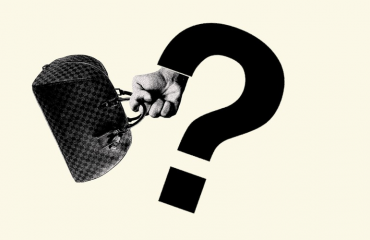Opinion | Abortion: Real Stories, Not Abstractions – The New York Times
Advertisement
Supported by
letters
Readers discuss having an abortion, the physical toll of pregnancy, their religious beliefs, unwanted children and more.
Send any friend a story
As a subscriber, you have 10 gift articles to give each month. Anyone can read what you share.
To the Editor:
I was just out of college when Roe v. Wade was decided. It enabled me, in my 20s, to terminate an unplanned pregnancy though I was on the pill at the time. I was not ready for a child and had grave misgivings about my skills at that age to be a parent. I have never regretted my decision. I was able to go on to graduate school and become a licensed clinical social worker.
A large part of the issue regarding abortion is not even being discussed — the welfare and care of children unwanted and unloved. Do people naïvely believe that once a child is born it will be loved? Why do we not talk about the life of a child born to a mother who does not want the child but won’t put it up for adoption?
The stories I could relate of children burned and physically and sexually abused would stun people. And that’s not even to mention the fact that the world needs fewer people, not more, given the scarcities that climate change will introduce.
JoAnn Ruppert
Santa Fe, N.M.
To the Editor:
Re “The Supreme Court Gaslights Its Way to the End of Roe” (Opinion, Dec. 4):
In response to Linda Greenhouse’s excellent article regarding the oral arguments for the Mississippi abortion case, I would add: Why is there so little discussion of the physical toll pregnancy exacts on women?
I suffered from PTSD for years after the hallucinogenic cocktail given to me during my first son’s surgical birth. The permanent nerve damage surrounding the puckered scar of my abdomen is a daily reminder of that experience.
My best friend nearly bled out on the operating table during the birth of her daughter, which has left her unable to have more children. My former colleague suffered from a fourth-degree tear during the birth of her first child, requiring surgical reconstruction of her vagina and rectum. She lamented to me that her bowel movements have never been the same, even 20 years later.
A young woman I met told me of the abortion she had because her morning sickness was so severe that she had used up all of her annual unpaid sick days in the first month of her pregnancy. Her boss threatened to fire her, so she chose to terminate so she could pay her rent.
I can go on and on with such stories. I know very few women who were left completely unscathed by their pregnancies and births. Every pregnancy has a lasting effect on a woman’s body, some more severe than others. It is not selfish to choose self-preservation.
Shaileen Patton
Charlotte, N.C.
To the Editor:
Re “The Case Against Abortion,” by Ross Douthat (column, Dec. 2):
Thank you for this column. While I’m sure the vast majority of your readers favor abortion rights, the minority of us who are against abortion appreciate anything we can get.
Mr. Douthat succinctly stated the primary argument against abortion, which, in my opinion, is unassailable. Abortion takes a human life for no other reason than that it is burdensome for the mother and/or father.
Pregnancy affects the female of the species in profound ways that cannot be fully understood by us males. But the pressures placed on a woman because of pregnancy cannot be used to justify the killing of the unborn child.
As a Christian, I believe that the obvious answer is to follow the clear teachings of Scripture. Children are a blessing and should be protected.
While you may not like the fact that pregnancy affects only a woman’s life in ways that don’t affect men, you’ll need to take that argument up with God if you believe in Him, or evolution if you don’t.
Paul A. Mattaliano Jr.
Charleston, S.C.
The writer is a retired pastor.
To the Editor:
Ross Douthat is an intelligent man and a skilled and highly effective writer. His columns are often convincing, even when they are based on conclusions that have more to do with ideology and philosophy than with actual living, struggling people.
In his column on abortion, his thinking ignores the reality of what a person facing a difficult choice actually experiences. Emotions and human needs seem not to matter.
One unfortunate example: What kind of life can an unborn and unwanted “person” look forward to? How many are condemned to poverty, how many will be rejected and abused by parents who never wanted them? How many of those who argue on their behalf are willing to grant them the resources that might make the life they are given tolerable?
Leonard Simon
Los Angeles
To the Editor:
Re “‘Her Heart Was Beating Too,’” by Sarah Wildman (Opinion, Dec. 1):
Regarding our vanishing reproductive rights, Ms. Wildman quotes Lynn Paltrow: “It is martyrdom and the visible suffering and death of a visible woman that reminds people of their humanity and their right to life.”
Is this what we’re waiting for? I am a visible woman who suffered a kitchen table abortion in 1956, but luckily didn’t die. I was invisible then, just as the women who are suffering and dying for lack of abortion care are invisible today.
One does not have to look far to find these women. It is tragic that they are invisible because they are mostly poor and powerless. It is obscene that they are being consigned to invisible suffering and possible death by unaffected men and largely privileged women. God help us — if She still can.
Fran Moreland Johns
San Francisco
The writer is the author of “Perilous Times: An Inside Look at Abortion Before — and After — Roe v. Wade.”
To the Editor:
Where are our voices? We are not an anecdotal few. We are not only Savita, Izabela and the woman in Texas with the ectopic pregnancy whom Sarah Wildman writes about. We are millions more. This is also a #MeToo moment. Don’t be afraid. We know your pain. We have been there, too. I have been there.
When I was 26 I had an ectopic pregnancy. I was hemorrhaging, the baby was lost and I was nearly lost, too. Luckily emergency surgery and transfusions saved my life but didn’t wipe away the shame. What had I done wrong? Nothing. But society expects happy mother-and-baby endings, so something I did must have been wrong. I mourned in silence.
I am turning 70 soon and I have a voice. Women, take back your humanity now. Stare down these empty, hateful legislatures and courts and let your voices be heard. These anti-abortion laws are anti-humanity laws. Take back your humanity now. You have a voice. We have a voice together.
Mary E. Slocum
Palo Alto, Calif.
To the Editor:
If the Supreme Court overturns Roe, how many young women will be willing to attend college in states that ban abortion?
Bonnie Thompson
Los Osos, Calif.
To the Editor:
Re “Abortion: The Voice of the Ambivalent Majority,” by David Brooks (column, Dec. 3):
I am impressed by Mr. Brooks’s thoughtful analysis of the moral issues involved in abortion. He succinctly brought out how intensely personal and how harrowing are the nature of decisions that are related to the extinction of a human life.
It is sad to see the self-centered callousness with which many progressives frame their arguments in favor of abortion as a right. Those who are not squeamish about reducing abortion to simply a question of “my body, my choice” are certainly guilty of being the most insensitive of all humans.
Nurturing and giving birth to a child are the most sacrosanct of all life processes. Who will take the onerous responsibility of deciding when a fetus is an individual and not just a bundle of cells? Is it possible for any scientist or physician to define the day when one’s individuality and one’s soul become embedded in the fetus?
Let us also keep in mind that 50 percent of the genes of the unborn baby belong to the father. Does he not have any rights in a decision of such great import?
Cyril Alappat
Kochi, India
Advertisement



